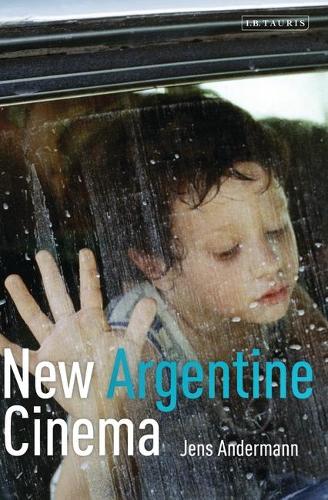
New Argentine Cinema
(Paperback)
Publishing Details
New Argentine Cinema
By (Author) Jens Andermann
Bloomsbury Publishing PLC
I.B. Tauris
30th November 2011
United Kingdom
Classifications
Tertiary Education
Non Fiction
Popular culture
791.430982
Physical Properties
Paperback
232
Width 156mm, Height 234mm, Spine 18mm
400g
Description
Argentine filmmaking from the mid-1990s to the present has enjoyed worldwide success. New Argentine Cinema explores this cinema in order to discover the elements that have made for this success, in relation to the country's profound political, social and cultural crisis during the same period. Jens Andermann shows how the most recent wave of films differs markedly from the Argentine cinema of the preceding decade, following the end of the dictatorship in 1983. Studying films by Lisandro Alonso, Albertina Carri, Lucrecia Martel, Raul Perrone, Martin Rejtman, and Pablo Trapero, among others, he identifies a shift in aesthetic sensibilities between these directors and those of the previous generation as well as a profound change in the way films are being made, and their relation to the audiovisual field at large. In combining close comparative analyses with a review of the changing models of production, editing, actorship and location, Andermann uncovers the ways in which Argentine films have managed to construct a complex, multilayered account of their own present, as shot through - or 'perforated' - by the still unresolved legacies of the past.
Reviews
'This is scholarship of a very high quality. Andermann picks his way judiciously through existing critical work but never fails to impress with his own lively and attentive readings.' - Joanna Page, author of Crisis and Capitalism in Contemporary Argentine Cinema; 'If you want to know why Argentine cinema over the past 15 years has proved so vibrant and so innovative, look no further than Jens Andermann's timely book.' - Maria Delgado, Professor of Theatre and Screen Arts, Queen Mary, University of London
Author Bio
Jens Andermann is Professor of Latin American and Luso-Brazilian Studies at Birkbeck College, University of London and an editor of the Journal of Latin American Cultural Studies. He has published widely on Latin American visual, literary and material culture, including the books The Optic of the State: Visuality and Power in Argentina and Brazil (2007) and Mapas de poder: Una arqueologia literaria del espacio argentino (2000).
